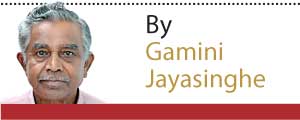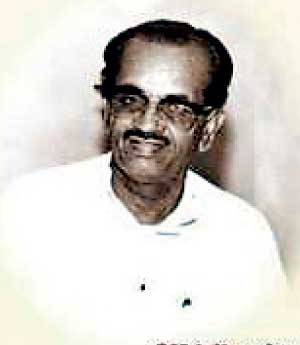Reply To:
Name - Reply Comment
Last Updated : 2024-04-20 00:00:00

Mother language or mother tongue is the language used and spoken by the mother, father and other members of the family of an infant.
This language is inherited by the infant by virtue of his or her birth in that family. Thus Sinhalese is the mother language of a baby born to a Sinhalese speaking family and Tamil is the mother language of an infant born to a Tamil speaking family.
Likewise, Japanese, Chinese, French, German, Spanish, Korean, Russian and various other languages are the mother languages of those who are born to respective families using and speaking such languages.
Mother speaking to the baby while feeding, soothing, lulling, pacifying, bathing, washing and dressing and whenever she wants to show and express her love to her infant son or daughter he or she starts to like and love the mother and listens attentively to the words of the mother and learns the language word by word especially when she sings songs in a bid to put him or her in bed.
Very often the infant first learns the words such as Amma, Umma or Mami (Mommy), indicating the mother and words such as Papa, Appa, Ayya indicating the father.
On the Mother Language Day, we should remember that our Mother Languages should be given the due recognition in view of the need to preserve it.
 Afterwards, they utter words indicating the other members of the family including the brothers, sisters, and grandparents. Later they learn words and numbers and thus they learn the language of the mother and hence it is called the mother language or the mother tongue. Presumably, it is more appropriate to call it the family language because the infants learn it from all the members of the family and not solely from the mother.
Afterwards, they utter words indicating the other members of the family including the brothers, sisters, and grandparents. Later they learn words and numbers and thus they learn the language of the mother and hence it is called the mother language or the mother tongue. Presumably, it is more appropriate to call it the family language because the infants learn it from all the members of the family and not solely from the mother.
Languages are the most powerful instruments of preserving and developing tangible and intangible heritage. All moves to promote the disseminate mother tongue will serve not only to encourage linguistic diversity and multilingual education but also to develop fuller awareness of linguistic and cultural traditions throughout the world and to inspire solidarity based on understanding tolerance and dialogue.
All groups of people are desirous of preserving and developing their tangible and intangible heritage. All moves to promote the dissemination of mother tongues will serve not only to encourage linguistic diversity and multilingual education but to develop fuller awareness of linguistic and cultural traditions throughout the world and to inspire solidarity based on understanding, tolerance and dialogue.
Generally, those who use and speak common mother languages build their own culture. There is a binding effect. There may be members belonging to different religious groups but they tolerate one another because of the binding effect and solidarity built among them.
Language should be at the junction of many sensitive and diverse problematic areas. The use or non-use of a language in the public spheres such as schools, the media or the internet is thus linked to levels of individuality, national alliance or power.
In the past, the people in countries which came under foreign domination were deprived of their legitimate right of using their mother languages. This has adversely affected the national heritage of the respective nations or countries.
The traditions, qualities and culture of those countries which existed for long periods of time and which are extremely important to those countries could not be passed on to future generations affecting the masses socially, culturally and economically
There are about three thousand languages in the world but only a limited number of them are used internationally. Many of these languages are under the threat of extinction. Agitations are made constantly by various sources for the recognition of mother languages as State languages. As a result, February 21 has been proclaimed as the International Mother Language Day by the UNESCO in November 1999.
In a bid to promote linguistic and cultural diversity and multilingualism the International Mother Language Day is observed annually by the UNESCO member states and at the UNESCO Headquarters.
This is mostly the international recognition of the language movement day, which had been commemorated in Bangladesh (Former East Pakistan) since 1952 when a number of Bengali speaking people were killed by the then Pakistan Police and the Army in Dhaka (Formerly Decca)
 Students campaign for the recognition of Bengali as one of the State languages
Students campaign for the recognition of Bengali as one of the State languagesOn February 21, 1952, a number of students campaigning for the recognition of Bengali as one of the State languages of Pakistan were killed when Police fired on them.
A Masters Student of the University of Dhaka, Abdul Barket, a student of the Manikgonj District, Rafiquddin Ahmad and an employee of the accounts section in the Dhaka High Court Shafiur were the Language Martyrs, who were killed on February 1952.
Following that Bangladesh officially sent a proposal to UNESCO requesting the world body to adopt a resolution declaring February 21 as the International Mother Language Day.
This proposal was seconded by Ivory Coast, Italy, Indonesia, Iran, Oman, Comoros, Gambia, Chile, Dominion Republic, Pakistan, Papua, New Guinea, Prague, Philippines, Bahamas, Vantaa, India, Micronesia, Malaysia, Egypt, Russia, Lithuania, Sri Lanka, Saudi Arabia, Slovakia, Surinam and Honduras.
During the reign of Sinhala kings, Sri Lankans enjoyed the privilege of using the mother language.
Foreign languages had not been introduced to our ancestors. Only Sinhala and Tamil languages which are our mother languages had been used in communication by our forefathers.
However, under the Western rule from 1505 onwards, the people of this country were ruled by three powers, Portuguese, Dutch and the British, who spoke and used languages other than our own and which are alien to us.
Communication between the rulers and the subjects did not work well.
There were very limited opportunities for higher education in Sinhala and Tamil. After the Senior School Certificate Examination (Jesta Pathashala Sahathika Patra Vibhagaya), a limited few could advance their education in mother languages, which were referred to as vernacular languages. Until 1956 University education was provided only in the English medium.
Examinations for the recruitment of candidates for positions in the Public Service were conducted only in the English medium, holders in the positions in the Ceylon Civil Service (Later the Ceylon Administrative Service and SLAS), Accountants Service, Engineering Service, and the Government clerical and allied services were conducted only in the English medium.
However, foreign domination could not prevent patriots from maintaining the eminence of our mother languages while preserving our culture.
Buddhist clergy played the pivotal role. Venerable Wariyapola Sri Sumangala Thera is an example.
He pulled down the Union Jack and trampled on it in protest against the Colonialism. The objective of these protests and agitations was to save the country, religion and the language from foreign domination.
Weera Keppetipola, Weera Puran Appu, Gongalegoda Bandara were some of the leaders who fought for the liberation from foreign rule and to save the country, religion and the mother languages.
Special mention should be made about the monk, S. Mahinda Thera who instigated and urged on the Sinhala community to fight for the language and nationalism.
Sinhala and Tamil languages remained rich, especially with religious literature. Grammar or the rules of using mother languages were laid down in books such as Sidat Sangarawa. In spite of step-motherly treatment, the methods of using these languages in the correct form were taught by scholars like Munidasa Kumaratunga. In spite of implementing the Official Language Act, the discussions in the Parliament were continued to be conducted mainly in English as it is the language common to most of the members.
Some Parliamentarians were not happy with it. One such Parliamentarian was T.B. Tennakoon, who was elected to Parliament in 1956 and was appointed as the Deputy Minister of Cultural Affairs. Mr Tennakoon could speak and understand English but he preferred to speak in the mother language. Under the Sirimavo Bandaranaike Government, he became a Cabinet Minister.
On the Mother Language Day, we should remember that our Mother Languages should be given the due recognition in view of the need to preserve it.

Add comment
Comments will be edited (grammar, spelling and slang) and authorized at the discretion of Daily Mirror online. The website also has the right not to publish selected comments.
Reply To:
Name - Reply Comment
On March 26, a couple arriving from Thailand was arrested with 88 live animal
According to villagers from Naula-Moragolla out of 105 families 80 can afford
Is the situation in Sri Lanka so grim that locals harbour hope that they coul
A recent post on social media revealed that three purple-faced langurs near t